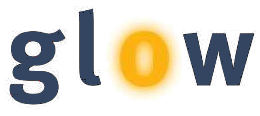Invited speaker:
Lisa Matthewson (University of British Columbia)
Organizers:
Uli Sauerland (ZAS Berlin)
Wataru Uegaki (University of Edinburgh)
OSF Prefix: WORKSHOP2-
OSF Tag: glow43-workshop2
Talks
All times are in CEST (UTC+2). Check the projects’ WIKI pages for updates.
| Project | Time slots for live interaction |
|---|---|
| Hedde Zeijlstra (University of Göttingen) What forbids existential deontic modal PPIs? (abstract) (project page) | Apr 10, 16:00-17:00 |
| Julie Goncharov (University of Tromsø) Language and intentions (abstract) (project page) | Apr 10, 17:00-18:00 |
| Paloma Jeretič (New York University) Modal strengthening in Ecuadorian Siona (abstract) (project page) | Apr 14, 16:00-17:00 |
| Maša Močnik & Rafael Abramovitz (MIT) Variable-force variable-flavor attitude verb in Koryak (abstract) (project page) | Apr 14, 15:00-16:00 |
| Lukas Rieser (Yamagata University) Expectation management by epistemic particles (abstract) (project page) | — |
| Natasha Korotkova (University of Konstanz / University of Tübingen) The subjective heart of evidentiality (abstract) (project page) | Apr 9, 16:00-17:00 |
| Mira Grubic (University of Potsdam) & Anne Mucha (Leibniz-Institute for the German Language, Mannheim) Decomposing necessity: The Hausa exclusive particle ‘sai’ as a window into the building blocks of modal meaning (abstract) (project page) | — |
| Lightning Talk (Alternate Talk): Jan Wiślicki (University of Warsaw) Modality for mixed quotation (abstract) (project page) | — |
| Lisa Matthewson (University of British Columbia) Universal constraints on modal flavour: The evidence so far | — |
Call for Papers
Human languages across the world exhibit a wide range of variation in their grammatical properties. But, is there any limit to such variation? Do languages share any significant common properties? The search for properties holding across languages, or language universals, is a fundamental goal in linguistics, as it offers a window into our shared linguistic ability as a human kind. Meanings of single words, or lexical semantics, is one area in which the research on language universals has been highly successful, for example in work on quantificational expressions, pronominals, and on color terms.
The GLOW workshop extends the research on lexical-semantic universals into an uncultivated domain: the modal and attitudinal domain. These words include modal auxiliaries (e.g., “may”/”must”), attitudinal verbs (“believe”/”know”), and modal particles such as ”hoor” and ”wel” in Dutch. Although these items have been extensively studied in particular languages, cross-linguistic universals concerning their meanings have been rarely investigated, due to the scarcity of theoretical frameworks that enable feasible universal constraints capturing their semantic intricacies. The workshop aims to provide an impetus to bring forward work on semantic universals in the modal and attitudinal domain.
